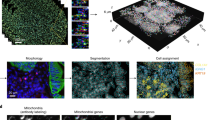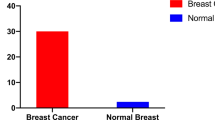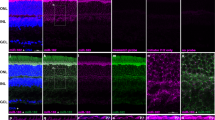Abstract
THE growth and development of the normal mammary gland are regulated by the complex interaction of both peptide and steroid hormones1. Whereas some breast cancers retain the hormone-dependent characteristics of normal mammary tissue2,3, other tumours loose this responsiveness and grow autonomously. Following the pioneering work of Huggins4 on the hormonal dependence of both experimental and human breast cancer, investigators seeking a prognostic test have studied the relationship of specific oestrogen receptors to mammary cancer5,6 to the response of the tumour to endocrine ablation7,8, and to the levels of other steroid9 and peptide hormone receptors10,11. A superior marker for hormone responsiveness would, however, be a measurable product of hormone action rather than the initial binding interaction. In the mammary gland, casein synthesis has been used as a specific biochemical marker of differentiated function and hormone responsiveness. In the studies reported here, a specific complementary DNA copy (cDNA) of rat casein mRNA has been utilised to study the effects of hormones on the expression of differentiated function in chemical carcinogen-induced mammary aden-carcinomas. It is shown that casein mRNA as detected by cDNA may be a useful indicator of hormone dependence in experimental breast cancer. The cDNA probe was synthesised using as a template a 15S casein mRNA fraction purified 180-fold from a lactating RNA extract by chromatography on dT-cellulose and several precise sizing techniques12,13. The template mRNA fraction represented greater than 90% casein mRNA, as estimated by specific immunoprecipitation of the total protein synthesised in the wheat germ assay, and by a careful analysis of its kinetics of hybridisation with the cDNA probe13. The specificity of the complementary DNA copy of the 15S casein mRNA has been demonstrated previously13. This cDNA probe selectively hybridised to RNA from lactating tissue but not to rat liver poly(A)-containinig RNA and the resulting hybrid displayed a high Tm characteristic of a well basepaired duplex. In addition, the rate of hybridisation of the casein-specific cDNA to various RNA preparations was directly related to the casein mRNA activity of these same preparations determined by a cell-free translation assay.
This is a preview of subscription content, access via your institution
Access options
Subscribe to this journal
Receive 51 print issues and online access
$199.00 per year
only $3.90 per issue
Buy this article
- Purchase on Springer Link
- Instant access to full article PDF
Prices may be subject to local taxes which are calculated during checkout
Similar content being viewed by others
References
Topper, Y. J. Rec. Progr. Hormone Res. 26, 287–308 (1970).
Smithline, F., Sherman, L. & Kolodny, H. D. New Engl. J. Med. 292, 784–792 (1975).
McGuire, W. L., Chamness, G. C., Costlow, M. E. & Shepherd, R. E. Metabolism 23, 75–100 (1974).
Huggins, C. & Bergenstal, D. M. Cancer Res. 12, 134–141 (1952).
King, R. J. B., Cowan, D. M. & Irman, D. R. J. Endocrin. 32, 83–90 (1965).
McGuire, W. L. & Julian, J. A. Cancer Res. 31, 1440–1445 (1971).
Jensen, E. V. Cancer Res. 35, 3362–3364 (1975).
McGuire, W. L., Carbone, P. P. & Vollmer, E. P. Estrogen Receptors in Human Breast Cancer (Raven, New York, 1975).
Horwitz, K. B., McGuire, W. L., Pearson, O. H. & Segaloff, A. Science 189, 726–728 (1975).
Turkington, R. W. Cancer Res. 34, 758–763 (1974).
DeSombre, E. R., Kledzik, G., Marshall, S. & Meites, J. Cancer Res. 36, 354–358 (1976).
Rosen, J. M. Biochemistry 15, 5263–5271 (1976).
Rosen, J. M. & Barker, S. W. Biochemistry 15, 5272–5279 (1976).
Houdebine, L. M. & Gaye, P. Molec. cell. Endocrin. 3, 37–55 (1975).
Costlow, M. E. & McGuire, W. L. J. natn. Cancer Inst. (in the press).
Archer, F. L. J. natn. Cancer Inst. 42, 347–362 (1969).
Hilf, R. Science 155, 826–827 (1967).
Young, S., Pang, L. S. C. & Goldsmith, I. J. clin. Path. 27, 94–102 (1974).
Bussolati, G., Pich, A. & Alfani, V. Virchows Arch. Anat. Hist. 365, 15–21 (1975).
Ross, H. N. & McGrath, C. M. Science 190, 673–675 (1975).
Nardacci, N. J. & McGuire, W. L. Cancer Res. 37, 1186–1190 (1977).
Author information
Authors and Affiliations
Additional information
The erratum article can be found online at https://doi.org/10.1038/271585a0
Rights and permissions
About this article
Cite this article
ROSEN, J., SOCHER, S. Detection of casein messenger RNA in hormone-dependent mammary cancer by molecular hybridisation. Nature 269, 83–86 (1977). https://doi.org/10.1038/269083a0
Received:
Accepted:
Issue Date:
DOI: https://doi.org/10.1038/269083a0
This article is cited by
Comments
By submitting a comment you agree to abide by our Terms and Community Guidelines. If you find something abusive or that does not comply with our terms or guidelines please flag it as inappropriate.



